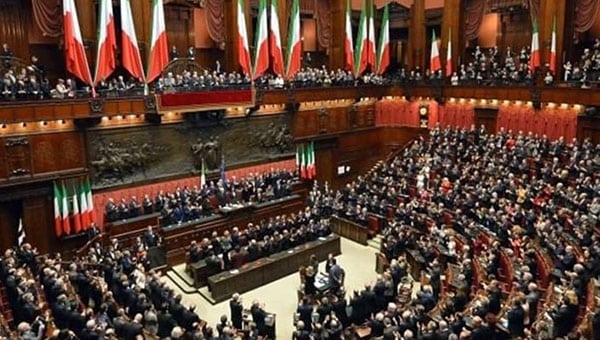By Kenneth Kaczkowski
and Isaac Maresky
Troy Media exclusive
The political trouble brewing in Italy has spilled over to global markets. The consequences are serious.

Kenneth
Kaczkowski
As Italy’s newly-elected prime minister failed to form a government, Italian short-term bond yields had their biggest spike in 26 years. And the turmoil in Italian bond markets spread into global equity markets.
The Italian stock market was down about five per cent by midweek, while the rest of European markets were down around two per cent. This drawdown in Europe has also led to declines in American and Asian markets. The global interconnectivity of markets has been clearly on display as this decline has spread.
The Euro has decreased 14 per cent against the U.S. dollar this year, making imported goods more expensive for those on the continent.

Isaac
Maresky
And trouble in southern European countries continues to hurt the European Union, which fears the necessity of additional bailouts.
In the past, Germany has bailed out other European countries in trouble. However, this needs to stop to ensure continued growth in the European Union. When Germany and the European Bank have offered funds to bail out countries, this has led to risky loans sitting on their banks’ balance sheets. In some sense, these loans can be regarded as subprime because the likelihood of them being paid off becomes slimmer as more turmoil occurs.
However, German banks aren’t the only ones that should be worried. As financial institutions have looked globally in search of adequate yields in bond markets, how exposed are these institutions to Italian bonds?
The answer was clear this week: the whole European financial sector, as well as American markets, flashed red.
Europe must ensure that these political situations stop flowing over into financial markets. The continent has had its economic difficulties in the past and has worked hard to overcome them. If they don’t manage to overcome difficulties again, all European countries will see considerably lower gross domestic product (GDP) with a weaker Euro and a decline in international investment.
Even though big money, including banks and pension funds, are looking for good returns, there comes a point where the risk in Europe won’t be worth the potential reward.
Let’s hope that as Europeans head south for the summer the market doesn’t follow them. Perhaps this action in Italian markets is just a hiccup and we’ll see a quick recovery.
However, investors should be prepared for increasing volatility in global markets in the coming months, along with greater risk.
Some of the largest names in money management have expressed concerns about Europe, including Ray Dalio from Bridgewater, the world’s largest hedge fund, which has made a US$22-billion bet against European markets. And billionaire investor George Soros, who famously broke the Bank of England by betting against the pound in the 1990s, said on Tuesday that “It is no longer a figure of speech to say that Europe is in existential danger; it is the harsh reality, we may be heading for another major financial crisis.”
As we head into the heart of the summer, it’s important for investors to actively manage risk and access global markets. It’s bad enough when you fall asleep in the sun and wake up with a sunburn – seeing the markets flashing red is a more serious problem.
A little bit of sunblock and a good investment risk protection plan can hopefully circumvent the worst problems.
Kenneth Kaczkowski is an equity research analyst in Munich. Germany. Isaac Maresky is a serial entrepreneur and investment banking professional with hundreds of millions of dollars of financings and M&A experience.
The views, opinions and positions expressed by columnists and contributors are the author’s alone. They do not inherently or expressly reflect the views, opinions and/or positions of our publication.


